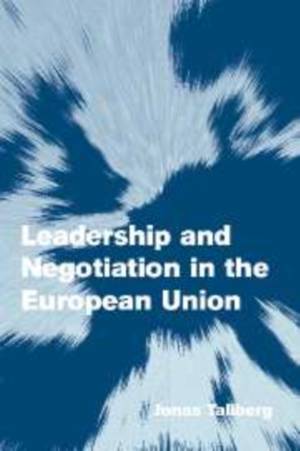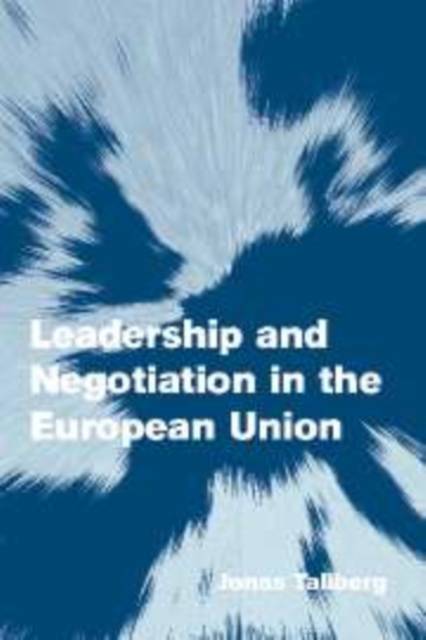
- Afhalen na 1 uur in een winkel met voorraad
- Gratis thuislevering in België vanaf € 30
- Ruim aanbod met 7 miljoen producten
- Afhalen na 1 uur in een winkel met voorraad
- Gratis thuislevering in België vanaf € 30
- Ruim aanbod met 7 miljoen producten
Zoeken
Omschrijving
In this 2006 book, Jonas Tallberg offers a novel perspective on some of the most fundamental questions about international cooperation and European Union politics. Offering the first systematic theoretical and empirical exploration of the influence wielded by chairmen of multilateral negotiations, Tallberg develops a rationalist theory of formal leadership and demonstrates its explanatory power through carefully selected case studies of EU negotiations. He shows that the rotating Presidency of the EU constitutes a power platform that grants governments unique opportunities to shape the outcomes of negotiations. His provocative analysis establishes that Presidencies, while performing vital functions for the EU, simultaneously exploit their privileged political position to favour national interests. Extending the scope of the analysis to international negotiations on trade, security and the environment, Tallberg further demonstrates that the influence of the EU Presidency is not an isolated occurrence but the expression of a general phenomenon in world politics - the power of the chair.
Specificaties
Betrokkenen
- Auteur(s):
- Uitgeverij:
Inhoud
- Aantal bladzijden:
- 280
- Taal:
- Engels
- Reeks:
Eigenschappen
- Productcode (EAN):
- 9780521864527
- Verschijningsdatum:
- 18/09/2006
- Uitvoering:
- Hardcover
- Formaat:
- Genaaid
- Afmetingen:
- 162 mm x 229 mm
- Gewicht:
- 566 g

Alleen bij Standaard Boekhandel
+ 386 punten op je klantenkaart van Standaard Boekhandel
Beoordelingen
We publiceren alleen reviews die voldoen aan de voorwaarden voor reviews. Bekijk onze voorwaarden voor reviews.











